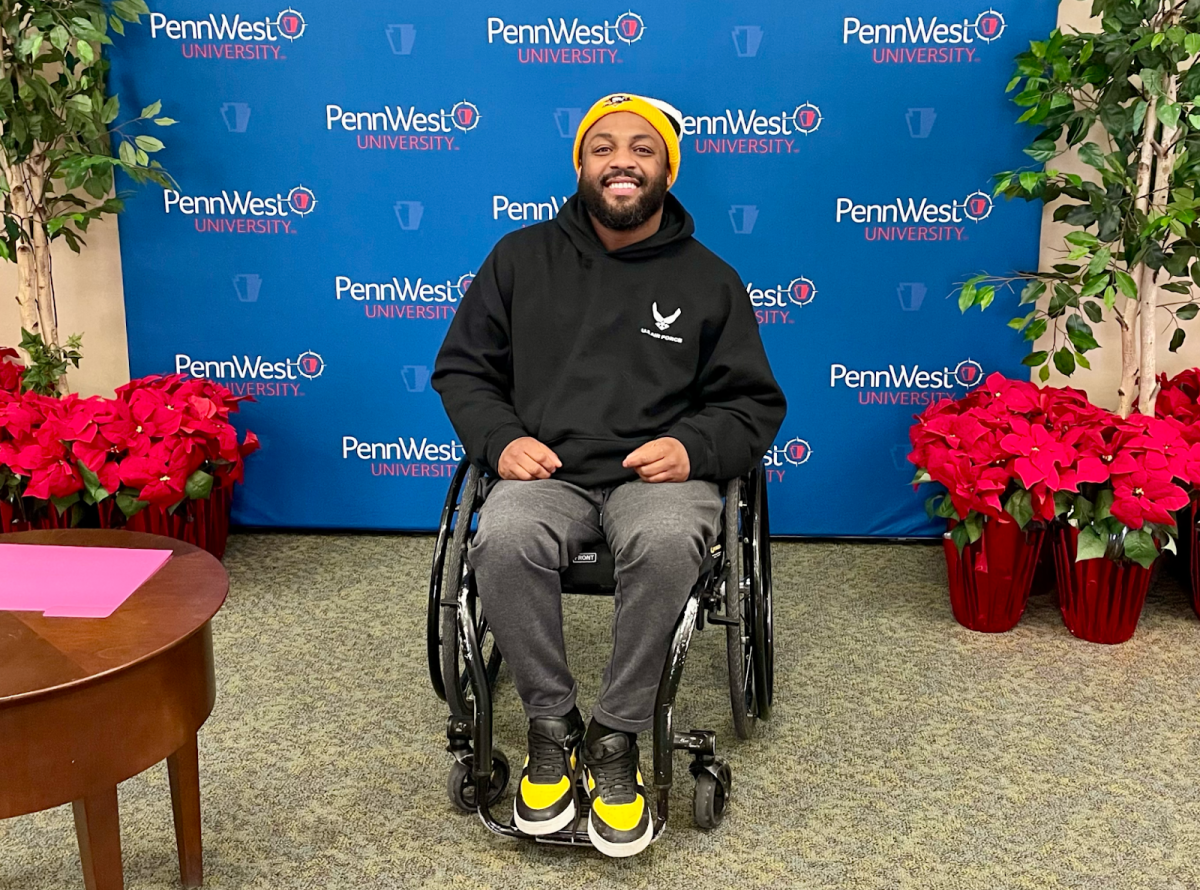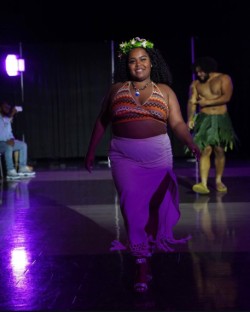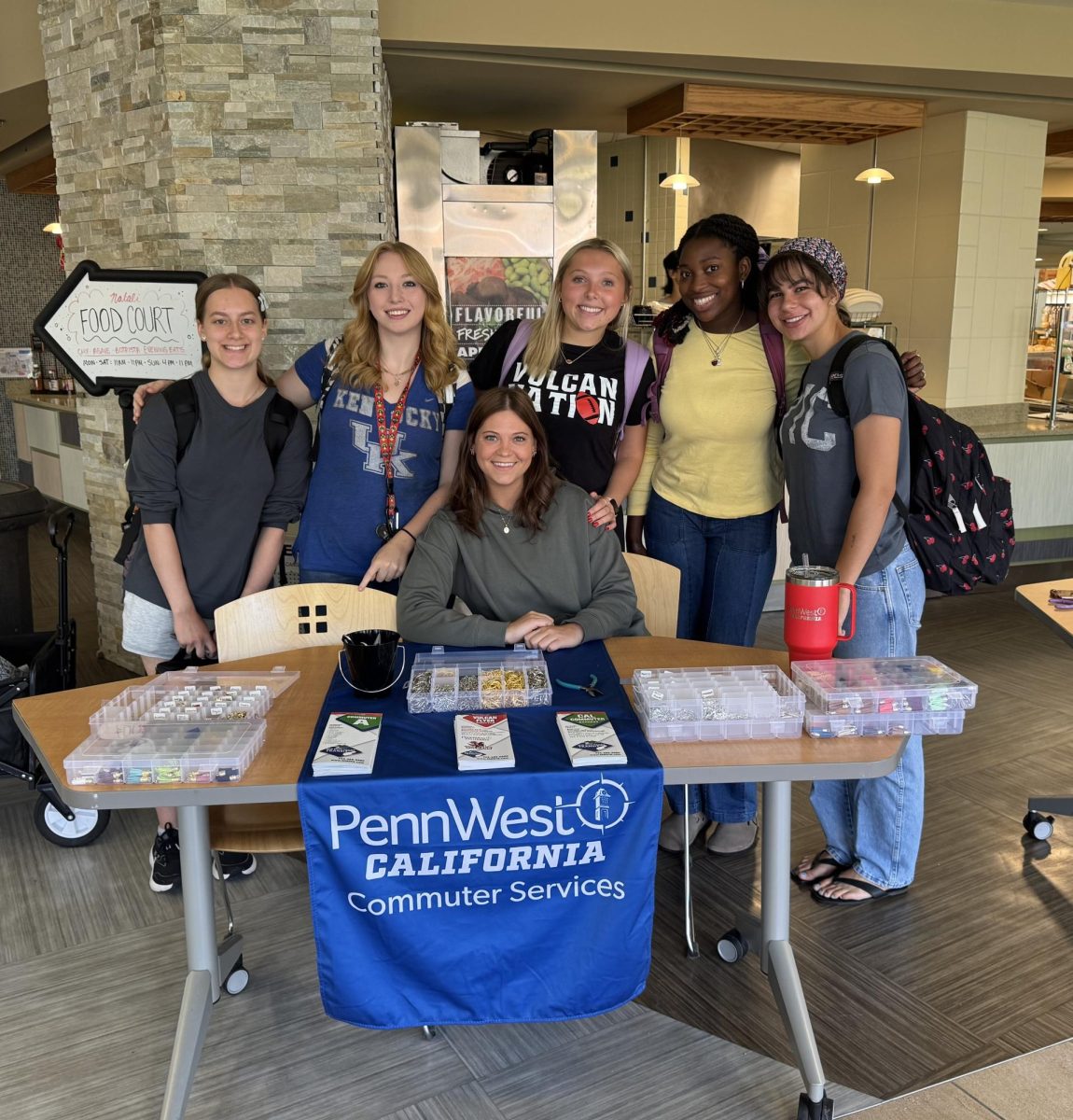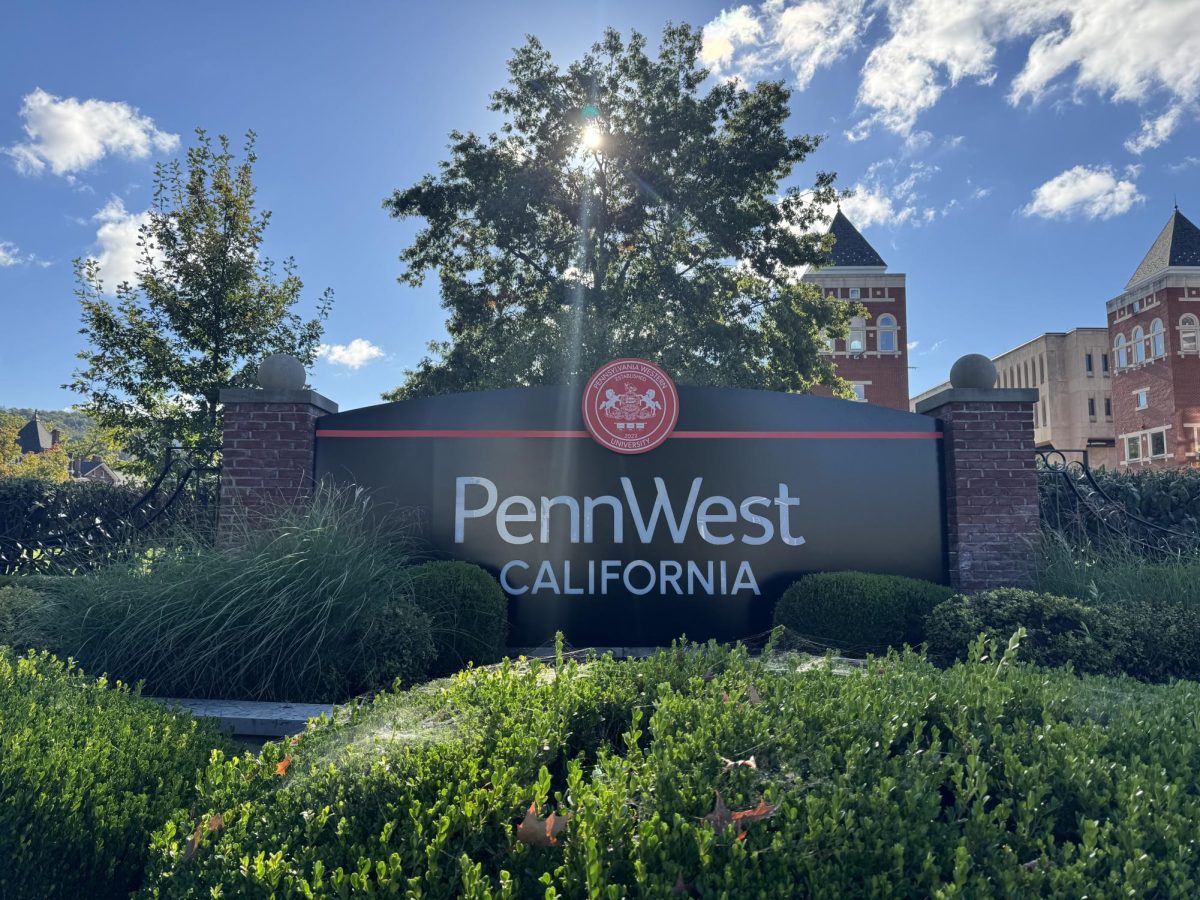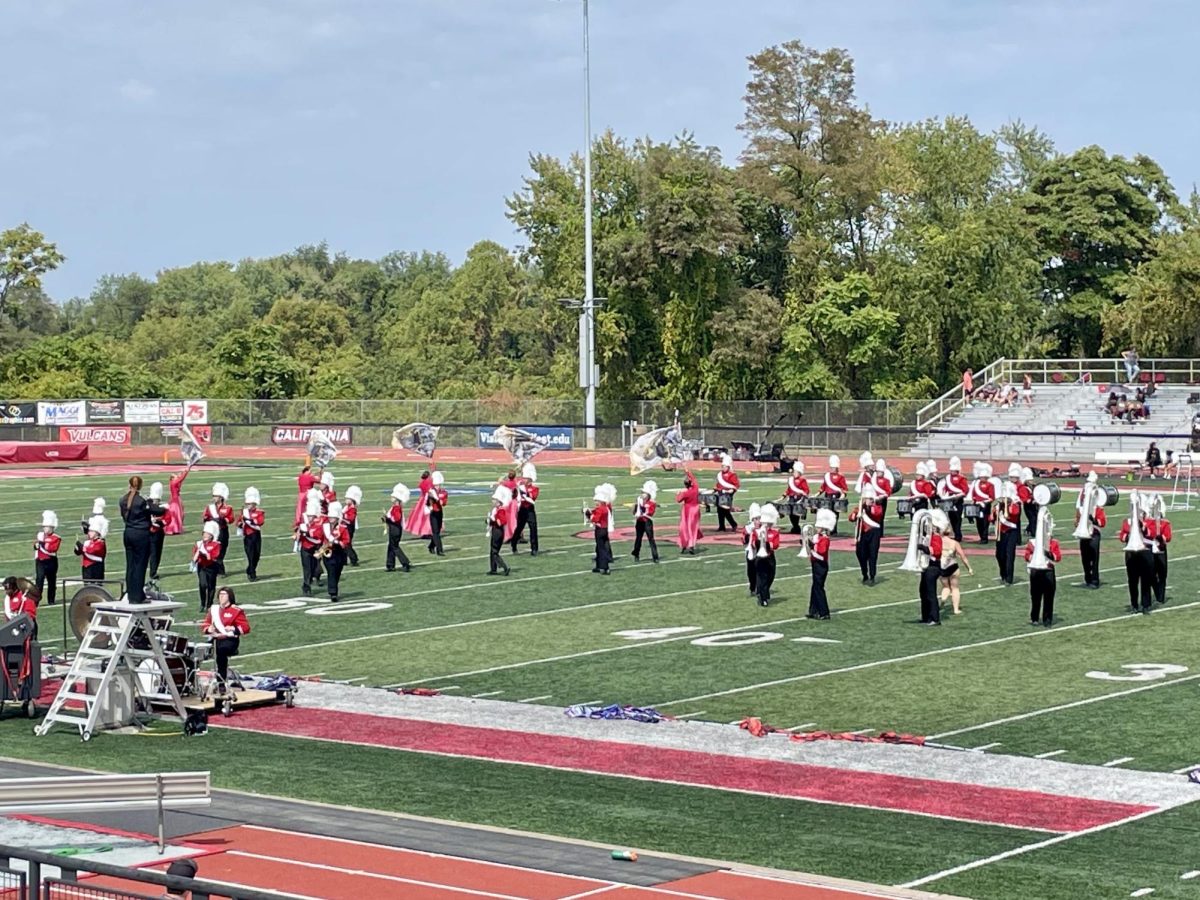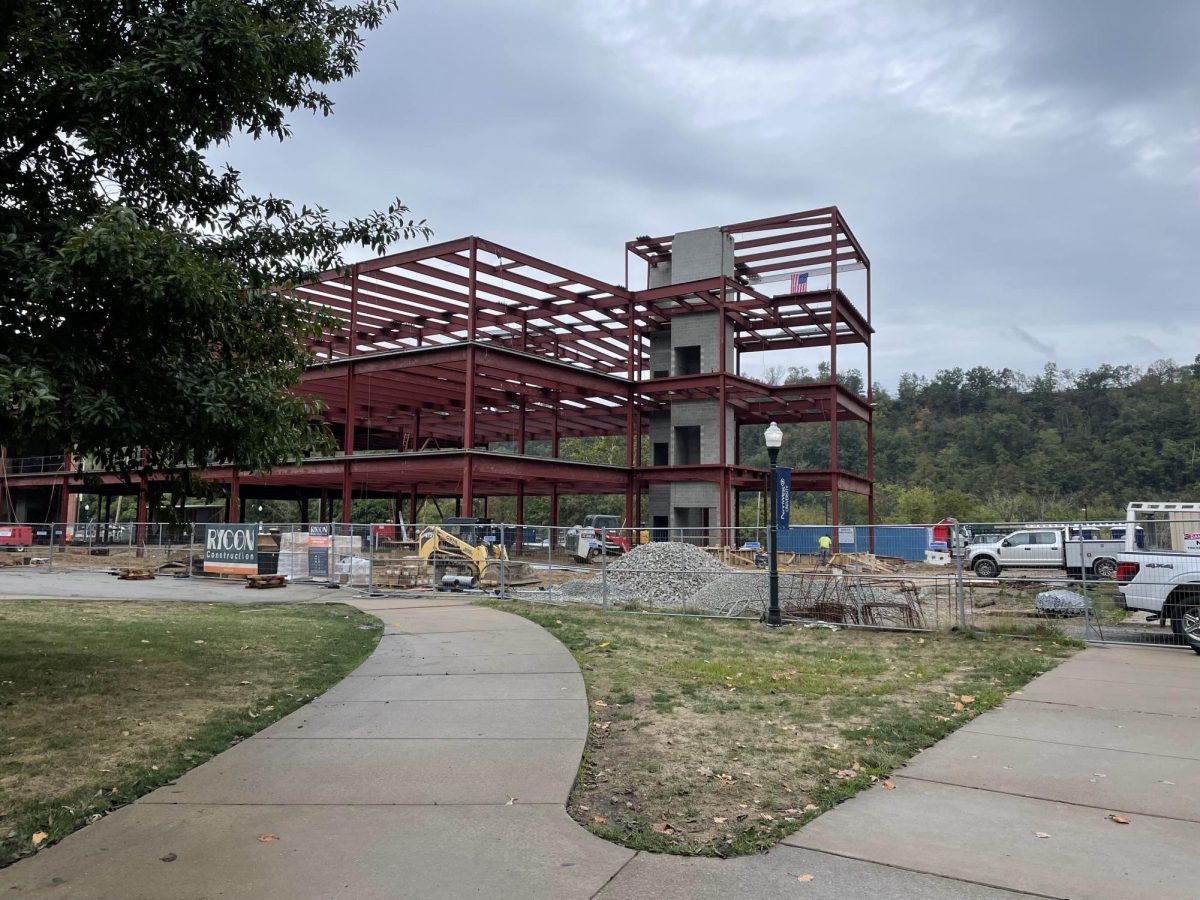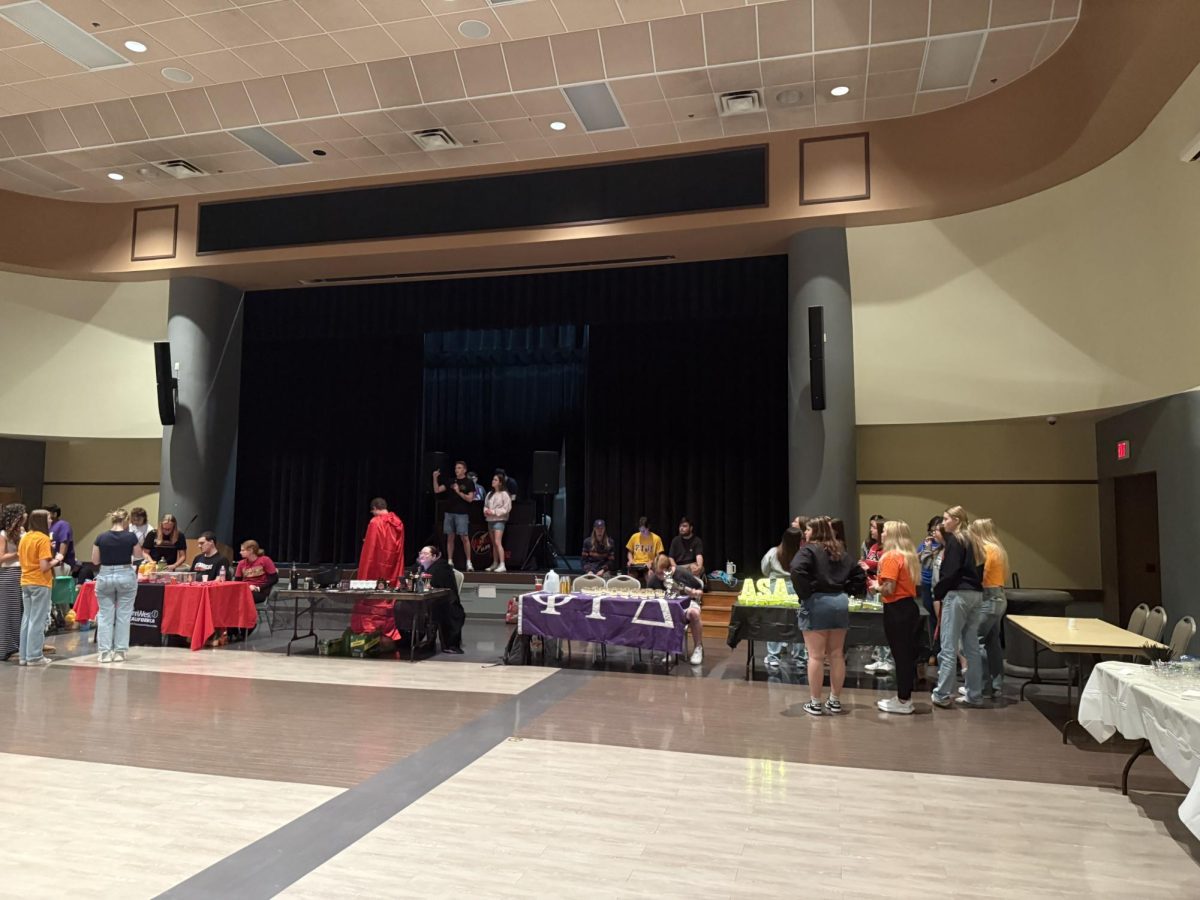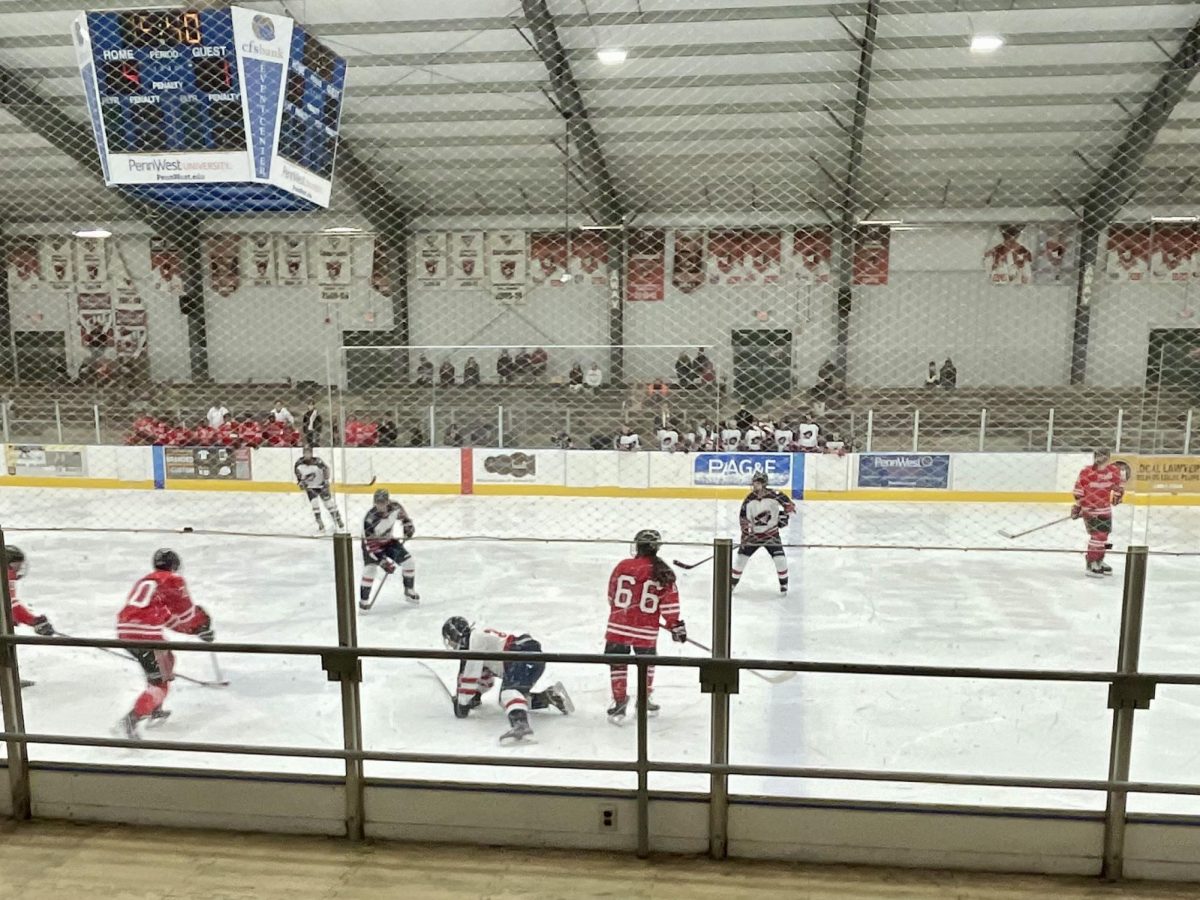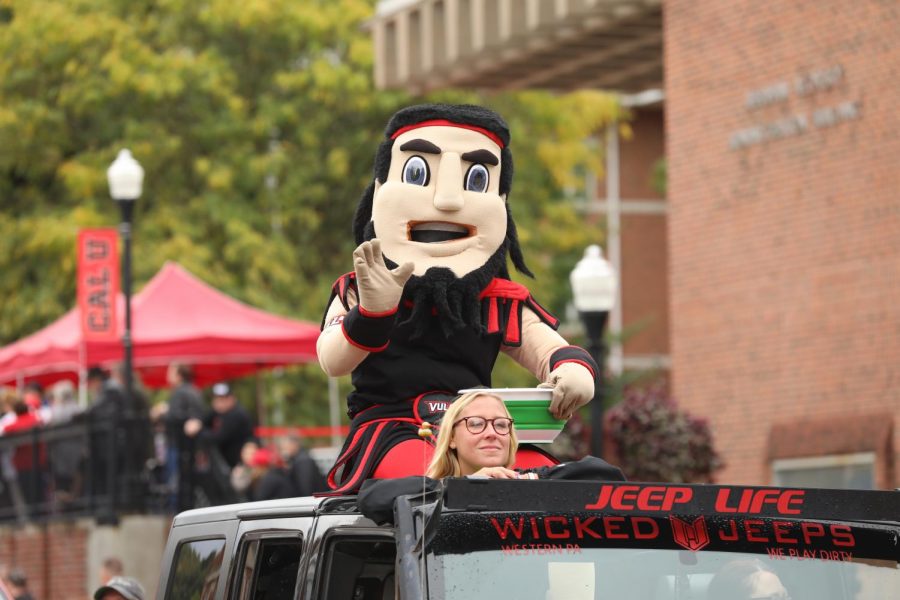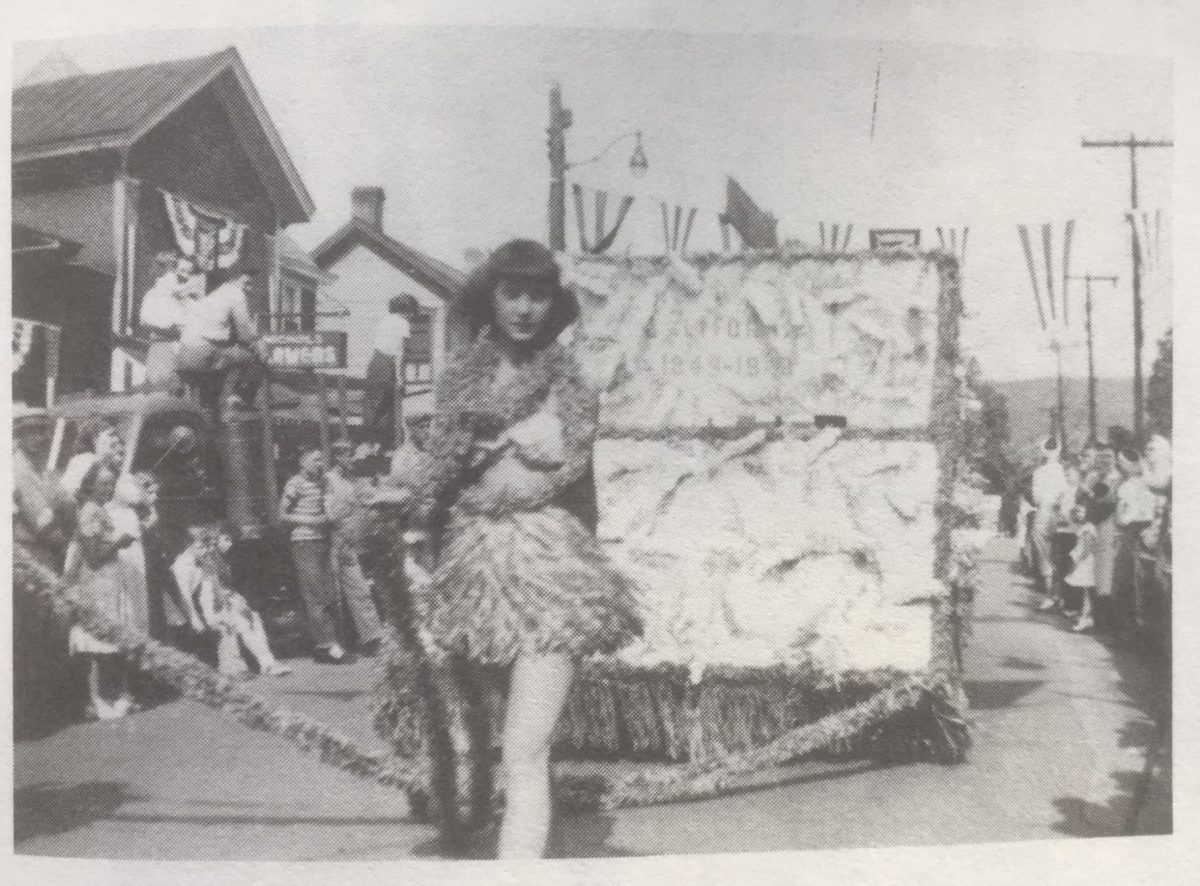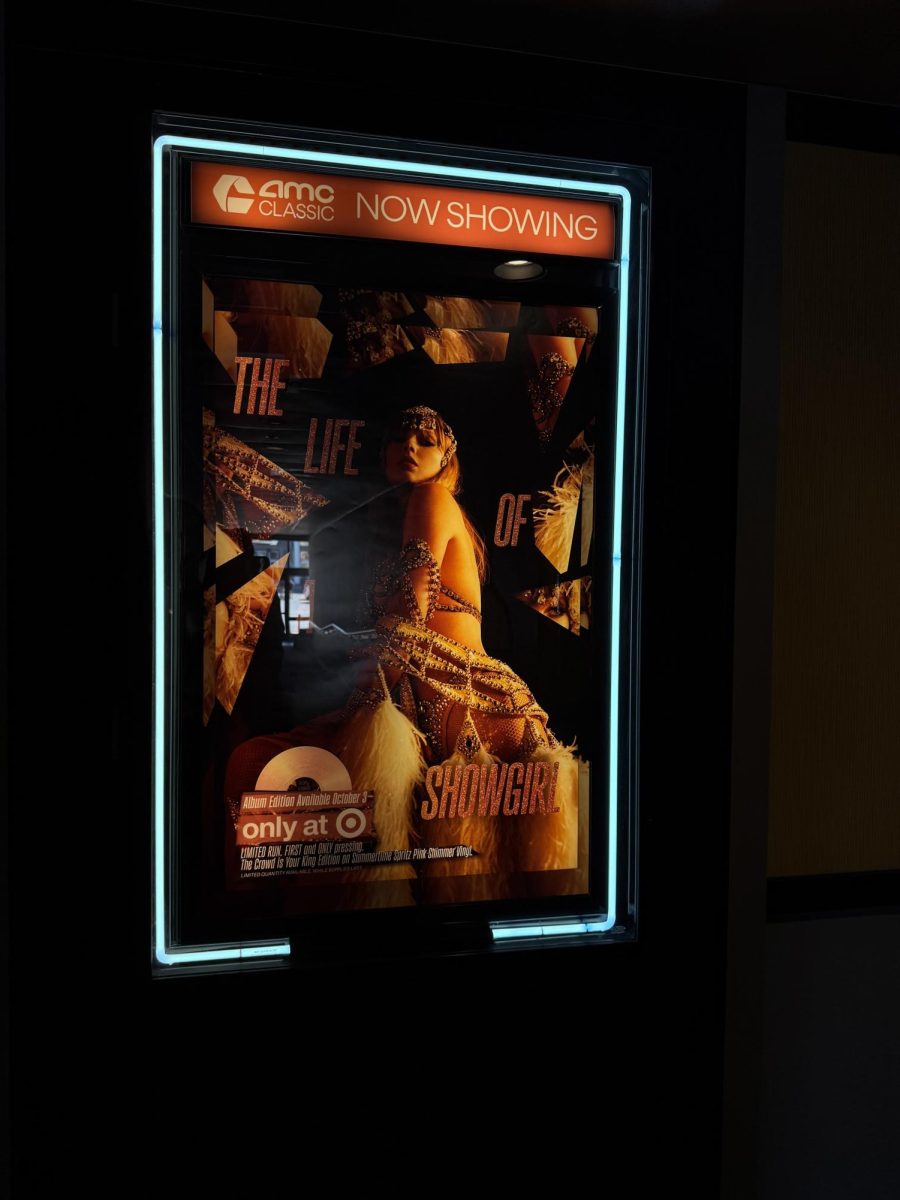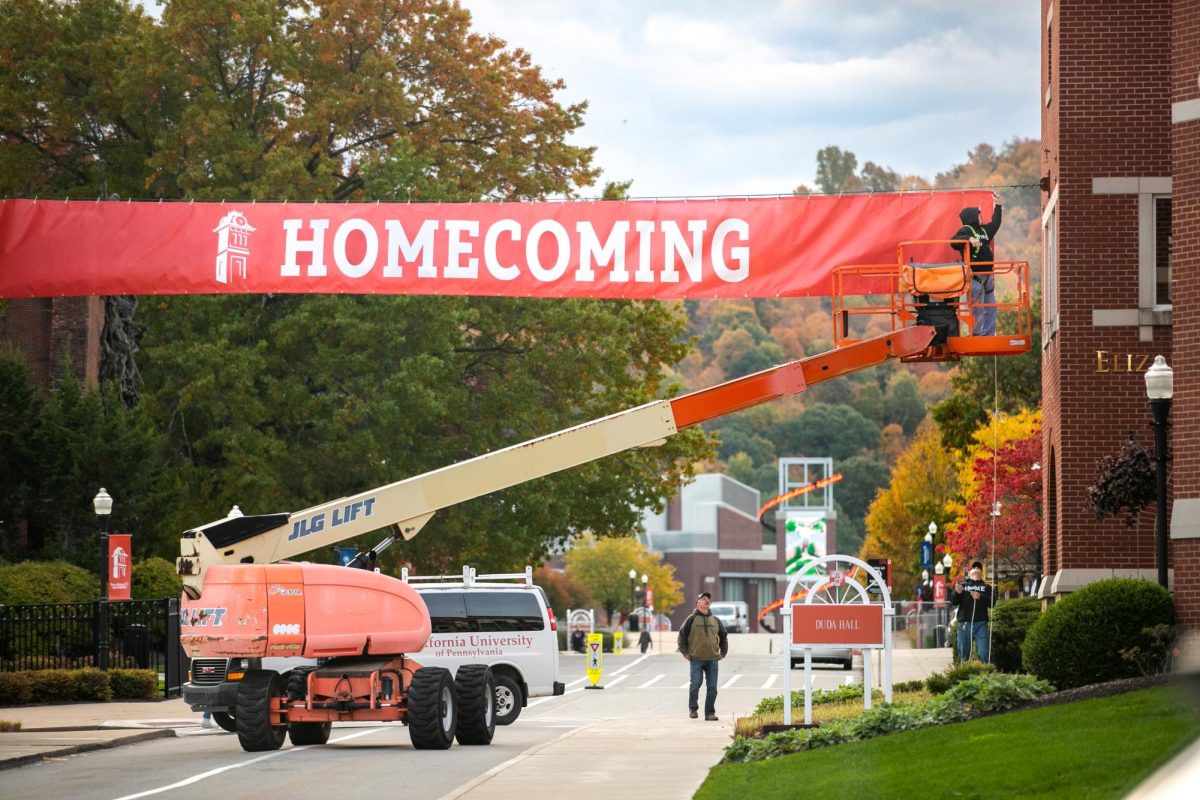PennWest California honored The National Day of Racial Healing by hosting Pittsburgh-based activist, international speaker, and author Leon Ford on Tuesday, Jan. 21.
The event, sponsored by the PennWest Office of Diversity, Equity, and Inclusion (DEI), was held in the Convocation Center South Wing, and broadcast to watch parties at both the PennWest Edinboro and PennWest Clarion campuses, as well as live streamed to the Pennsylvania Western University YouTube channel.
Ford began to share his story after welcomes from Dr. Bob Mehalik, California Campus Academic Dean, and Savannah Dorsey, the Associate Director of DEI.
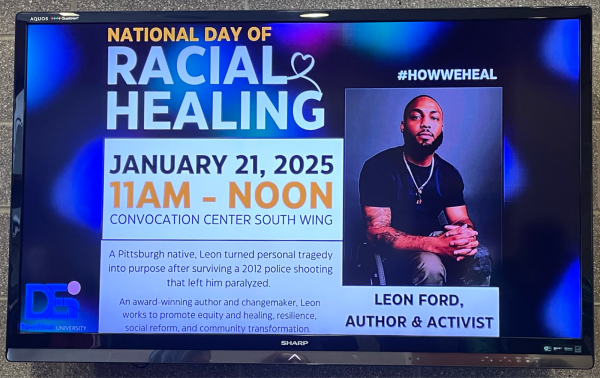
Leon Ford’s path to activism began on Nov. 11, 2012. At 19 years old, he was pulled over for a routine traffic stop that turned violent when he was mistaken for another individual with a similar name and an extensive criminal record.
“They went from questioning me to accusing me, to threatening me,” Ford explained. He was shot five times: once in the neck, pelvis, and arm, and twice in the chest, with one of the shots leaving him paralyzed below the waist.
He discovered that he was under arrest while recovering in the hospital, and he had to be shackled to the bed and monitored constantly by a police officer. His family was unable to visit him, and he faced a 20-year prison sentence.
Ford began expressing his hatred for police officers and White people through social media and protests. However, his grandfather motivated Ford to change his point of view and gain empathy.
“He said, ‘Do you want to make a point or do you want to make a difference?’” Ford recalled. He began veering away from the negative posts and hatred and focused on changing his point of view.
“Instead of being consumed by hatred, I’m doing my best to make a difference,” he said. He began meeting with police officers, government officials, and other advocates of change. Ford even met with the police officer who shot him in 2012.
Ford notes that in broadening his thinking, he has had to put himself in other people’s shoes and attempt to understand their beliefs and values.
“I’ve had my own biases that I’ve had to check,” he said. “Now, I understand the significance of dialogue. Sometimes, you agree to disagree in a very respectful way.”
Ford took both a law enforcement course and a psychology course at Duquesne University to further his understanding of others in the public safety field.
“Nobody ever taught me how to interact with law enforcement,” he admitted. His advocacy helps teach people their rights and prevent misinformation and misjudgment.
Ford also credits his son, born about six weeks after the traffic stop in the same Pittsburgh hospital in which he was recovering, for his now-positive outlook on life.
“My son gave me hope,” Ford said. “I thought, I don’t want to just prepare my son for the world, I want to prepare the world for my son.”
Ford’s son is now 12 years old and is familiar with his father’s story and cause.
“I tell him the truth. I try to expose him to my work, I respect his feelings and his perspectives. I don’t force him to see things the way I see things,” he said.
Since beginning his advocacy, Ford has received the Muhammad Ali Humanitarian Award and made the Forbes 30 under 30 and Pittsburgh’s 40 under 40 lists, among other accolades. He released his memoir, “An Unspeakable Hope” and went on an international book tour in 2023.
Ford also spoke about the significance of the National Day of Racial Healing. The touching holiday, held the Tuesday following Martin Luther King Jr. Day, empowers people to practice empathy toward others and educate themselves and others on racial topics.
“When we talk about healing, it’s not easy but it’s necessary,” he said.
Speaking to the Black attendees at the event, Ford posed a question: “If we are not educating them about our lived experiences, who will?”

